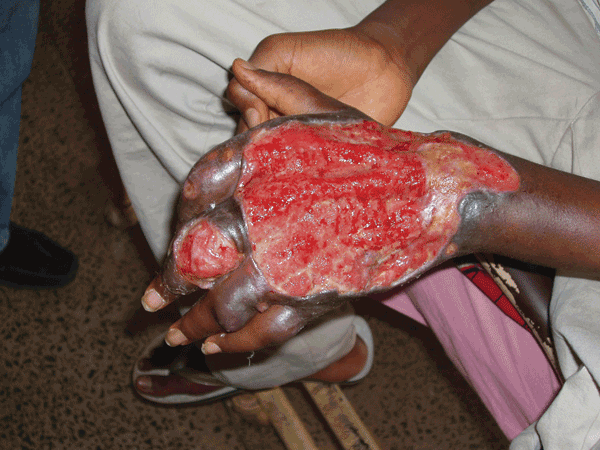Buruli ulcer: Significant breakthrough in cure for flesh-eating disease [Graphic images]

Scientists have moved one step closer to finding a cure for a flesh-eating skin disease.
Researchers from the University of Surrey have made a significant breakthrough in the search for the cure for Buruli ulcer – a tropical skin disease that eats away at the flesh.
They found the bacteria associated with the ailment causes a blood clot in the skin – similar to ones that cause deep vein thrombosis (DVT). By identifying this, it may mean the clots could be treated with anticoagulant medicines – like with DVT, according to the findings published in PLOS Pathogens.
The team now hopes this will accelerate the development for a cure, with the disease being rife in poor West African communities.
Lead author Dr Rachel Simmonds from the University of Surrey said: "This is a huge breakthrough in our understanding of the disease.

"Buruli ulcer is an emerging tropical disease, which is caused by infection with Mycobacterium ulcerans, an organism which belongs to the family of bacteria that causes tuberculosis and leprosy. Around 5,000 cases are recorded each year, the majority in poor rural communities in West Africa, Australia and south-east Asia where the infection is thought to occur when people bath in slow running water.
"While antibiotics are currently used to treat Buruli ulcer, they take a long time to work and few people with the disease can afford to pay for extended stays in hospital. The ulcers are often painless, and as a result, early signs of infection are ignored, or thought to be a 'curse'. Infected people, often children, are treated by traditional healers rather than modern medicine.
"We hope our research will now enable better treatment combinations that will reduce the lifetime deformity patients have to bear."
© Copyright IBTimes 2025. All rights reserved.






















